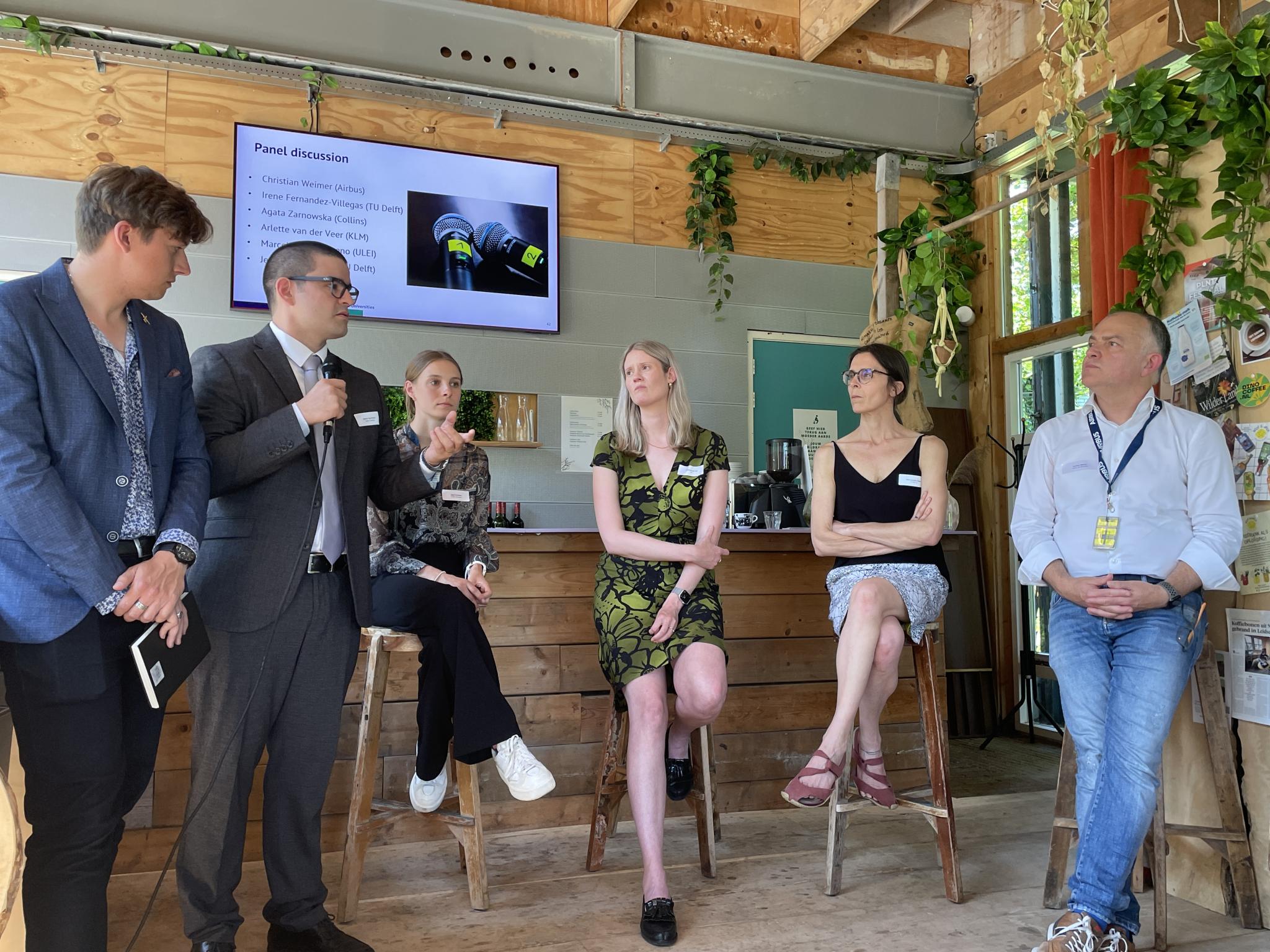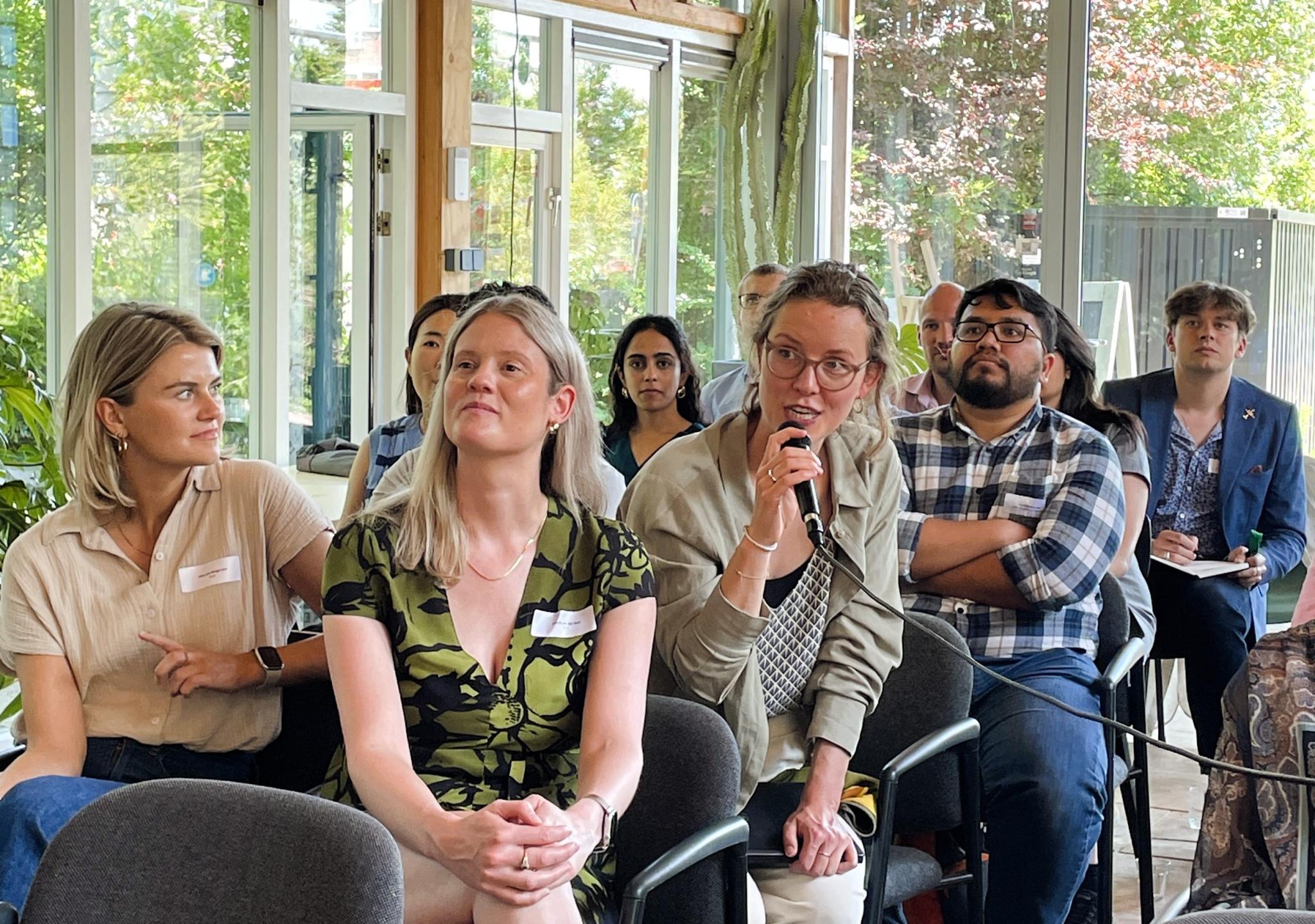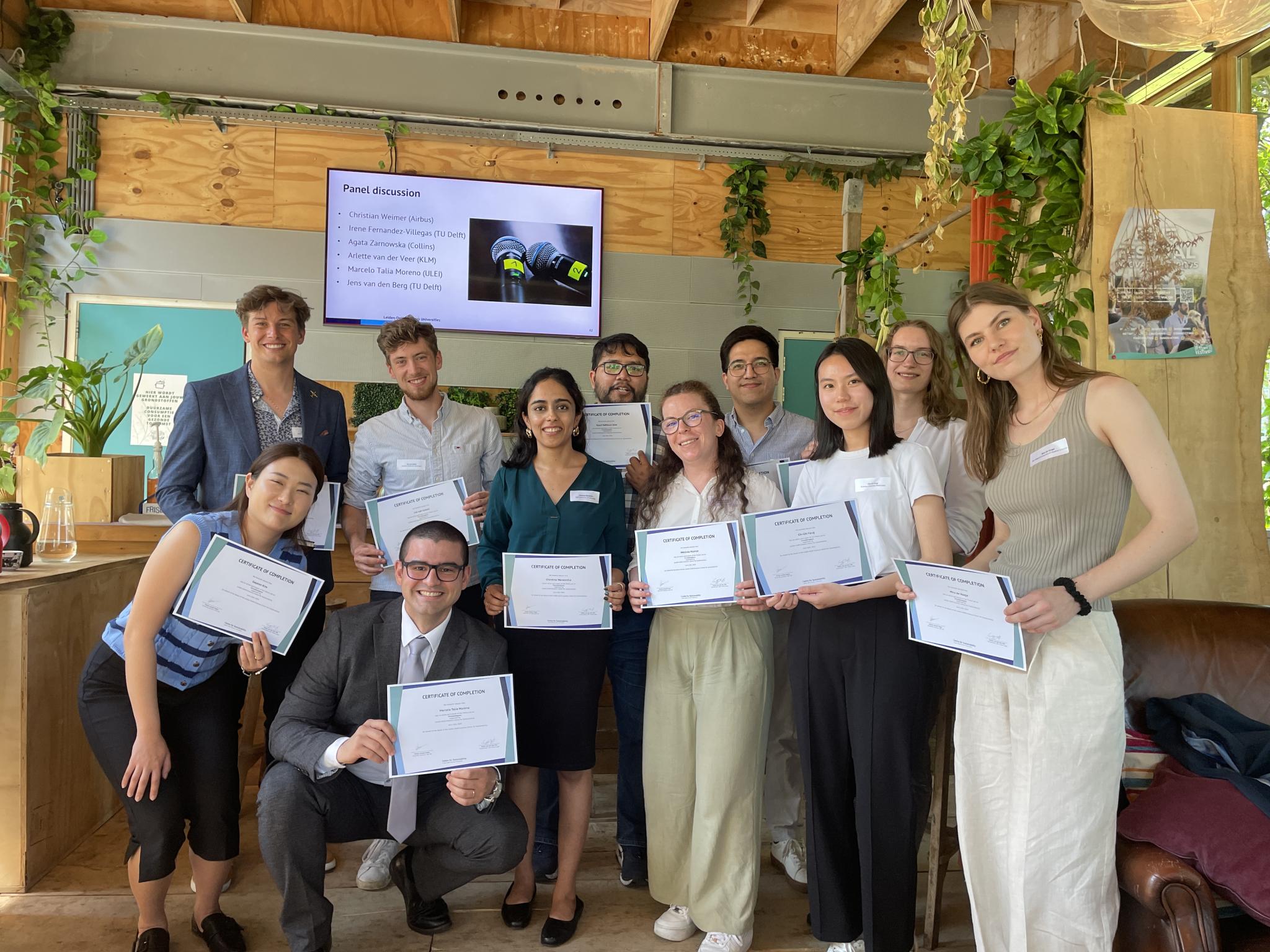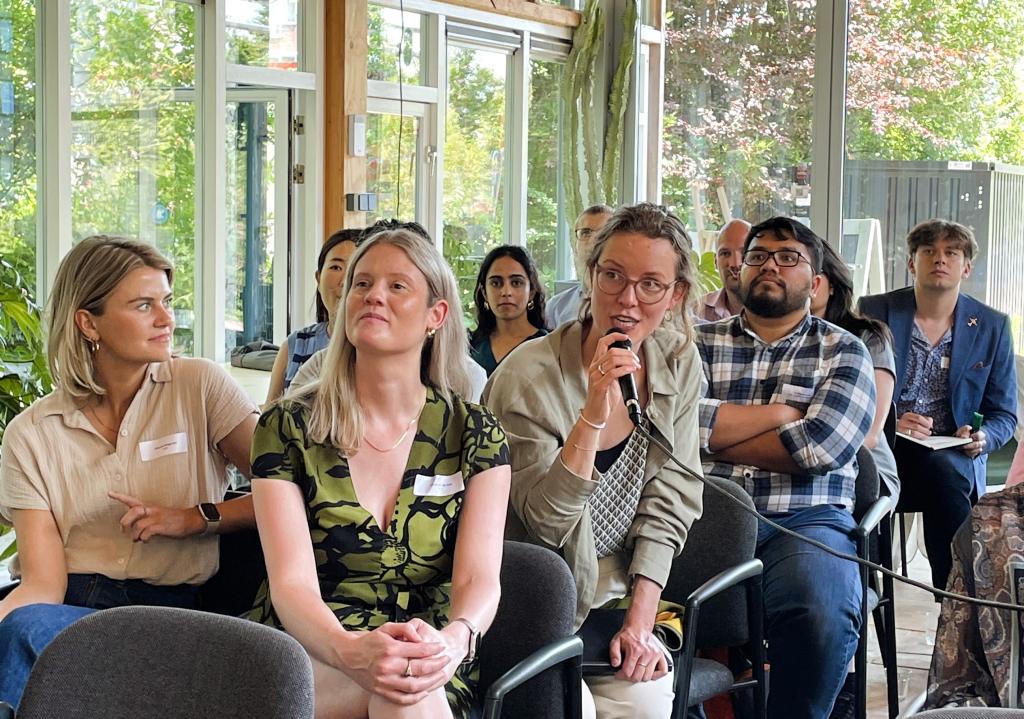On Wednesday 26th of June, the students from the Circulaerospace Thesis Lab, Airbus, the case holder of the lab, and important stakeholders in the aerospace sector such as Collins Aerospace, NLR, KLM, Driessen Catering, NAG and TU Delft, fastened their seatbelt and embarked together on a journey towards a green future. As the afternoon passed by and the students presented their combined research results, it became clear from the discussions and debates that this journey would not be without any turbulence.

Tremendous change is required
‘At this point of the year, there have been as many flights in 6 months as in the whole year in 2019 before the pandemia.’ points out Guido Schwartz, Strategist Aerospace Innovation Ecosystems at Airbus. Air traffic is increasing and with the access to wealth from countries in the Global South, it is predicted that the number of air transport passengers could be multiplied by more than two worldwide by 2050 compared to 2019 and exceed 10 billion (Source IATA). Reaching net-zero emissions while maintaining the current growth of the aerospace sector is an enormous challenge. ‘Technology alone will not be enough’, says Irene Fernandez-Villegas, researcher at the Aerospace faculty of TU Delft. ‘Reaching the Paris agreement on time requires a tremendous behavioral change from everyone’.
Many questions to be discovered
What a challenge these eleven students, originating from Leiden University, Erasmus University Rotterdam, Delft University of Technology and The Hague University of Applied Sciences, have been working on during the 6 months of the Circulaerospace Interdisciplinary Thesis Lab! Will bio-based materials be part of the new sustainable aircraft? Will AI and digital tools enable the discovery of new materials for aviation or help optimize production techniques and supply chain monitoring? What business models are required to implement sustainable innovations, what are the barriers to sustainable innovation and what is actually a sustainable innovation?

Passionate discussion
On Wednesday June 26th, the students presented their results in front of a public of experts from the aerospace sector. They officially handed over their recommendations to Airbus in the form of a System Catalogue explaining their key findings and how they correlate with one another. This led to very insightful and passionate discussions with the public. During a panel, experts from KLM, TU Delft, Airbus, Collins Aerospace and the students debated barriers and enablers toward a more sustainable aerospace sector.
READ THE SYSTEM CATALOGUE HERE
‘Without the lab, I would not have gained all these insights from my fellow lab students’, says Chinmayi Narasimha, student at the TU Delft in Industrial Design Engineering. ‘Thanks to the lab, I could include various aspects such as governance, environmental impact assessments, supply chain and market analysis in my own research. This made my approach and results far more holistic.’

Finding a common language
We were pleased to see so many parties present on this warm afternoon of June, discussing together the future of aviation at The Field in Leiden, little green island in the middle of the very dense and noisy city centre, made exclusively out of 2nd hand construction materials. ‘If one thing is for sure, it is that the sector cannot work in silos anymore. We need a holistic approach, and for that we need to bring all relevant stakeholders together and speak a common language. Actually what the LDE does with this Lab, bringing students from various disciplines together, but with the entire sector!‘, notes enthusiastically Peter Kortbeek from NAG the Dutch aviation branch organization at the end of the event.
The lab will continue next year with new case holders: NLR, the foundation AETHOS and Collins Aerospace. Interested? Board now!

